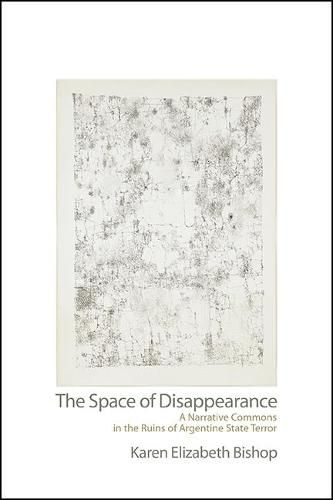Readings Newsletter
Become a Readings Member to make your shopping experience even easier.
Sign in or sign up for free!
You’re not far away from qualifying for FREE standard shipping within Australia
You’ve qualified for FREE standard shipping within Australia
The cart is loading…






This title is printed to order. This book may have been self-published. If so, we cannot guarantee the quality of the content. In the main most books will have gone through the editing process however some may not. We therefore suggest that you be aware of this before ordering this book. If in doubt check either the author or publisher’s details as we are unable to accept any returns unless they are faulty. Please contact us if you have any questions.
More than thirty thousand people were forcibly disappeared during the military dictatorship that governed Argentina from 1976 to 1983, leaving behind a cultural landscape fractured by absence, denial, impunity, and gaps in knowledge. This book is about how these absences assume narrative form in late twentieth-century Argentine fiction and the formal strategies and structures authors have crafted to respond to the country’s use of systematic disappearance as a mechanism of state terror. In incisive close readings of texts by Rodolfo Walsh, Julio Cortazar, and Tomas Eloy Martinez, Karen Elizabeth Bishop explores how techniques of dissimulation, doubling, displacement, suspension, and embodiment come to serve both epistemological and ethical functions, grounding new forms of historical knowledge and a new narrative commons whose work continues into the twenty-first century. Their writing, Bishop argues, recalibrates our understanding of the rich and increasingly urgent reciprocities between fiction, history, and the demands of human rights. In the end, The Space of Disappearance asks us to reexamine in fiction what we think we cannot see; there, at the limits of the literary, disappearance appears as a vital agent of resistance, storytelling, and world-building.
$9.00 standard shipping within Australia
FREE standard shipping within Australia for orders over $100.00
Express & International shipping calculated at checkout
This title is printed to order. This book may have been self-published. If so, we cannot guarantee the quality of the content. In the main most books will have gone through the editing process however some may not. We therefore suggest that you be aware of this before ordering this book. If in doubt check either the author or publisher’s details as we are unable to accept any returns unless they are faulty. Please contact us if you have any questions.
More than thirty thousand people were forcibly disappeared during the military dictatorship that governed Argentina from 1976 to 1983, leaving behind a cultural landscape fractured by absence, denial, impunity, and gaps in knowledge. This book is about how these absences assume narrative form in late twentieth-century Argentine fiction and the formal strategies and structures authors have crafted to respond to the country’s use of systematic disappearance as a mechanism of state terror. In incisive close readings of texts by Rodolfo Walsh, Julio Cortazar, and Tomas Eloy Martinez, Karen Elizabeth Bishop explores how techniques of dissimulation, doubling, displacement, suspension, and embodiment come to serve both epistemological and ethical functions, grounding new forms of historical knowledge and a new narrative commons whose work continues into the twenty-first century. Their writing, Bishop argues, recalibrates our understanding of the rich and increasingly urgent reciprocities between fiction, history, and the demands of human rights. In the end, The Space of Disappearance asks us to reexamine in fiction what we think we cannot see; there, at the limits of the literary, disappearance appears as a vital agent of resistance, storytelling, and world-building.